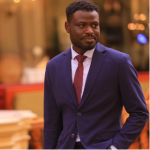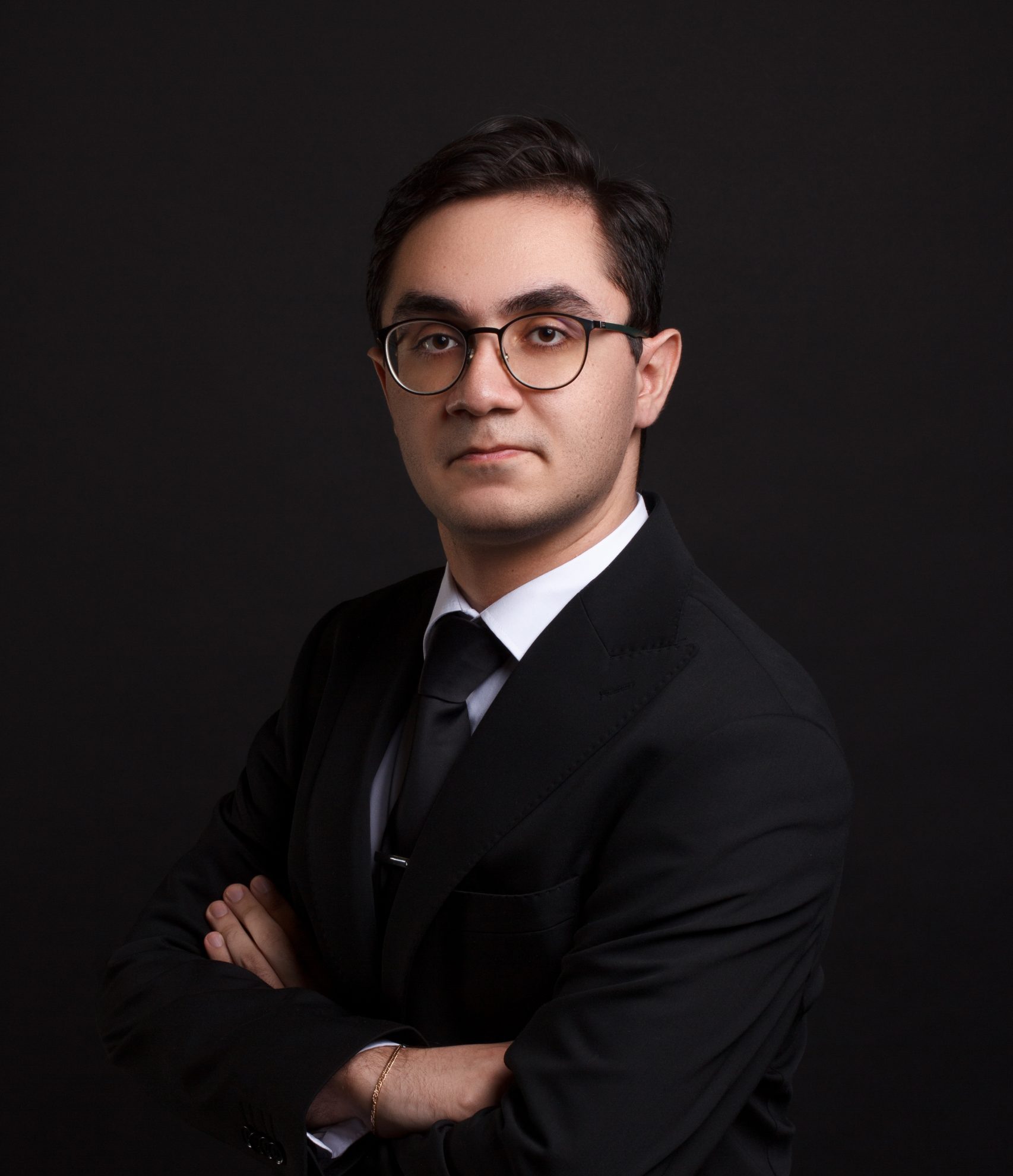MOSCOW, NOVEMBER 10, 2025. PIR PRESS. «Timerbaev Debates are more than just an intellectual competition; they serve as a platform for developing critical thinking. As Roland M. Timerbaev himself used to say, it is important not merely to agree or disagree but to explain why. Mr. Timerbaev was a diplomat, a scholar, and a person who argued for truth, not for victory. He always fought against dogma and demanded independent thought. That is why these debates bear his name: they bring together thinkers who strive for understanding instead of slogans», – Dr. Vladimir Orlov, PIR Center Founding Director.
PIR Center, jointly with MGIMO University, hosted the IX Timerbaev Debateson the topic “Is the Threat of Nuclear Weapons Use in the Next Decade Real?” Participants were split into two teams – the Affirmative and the Negative. In preparation, each team developed arguments both supporting and opposing the proposition; however, the participants were informed about their position only a few hours before the debates started.
A key part of preparing the participants was played by the teams’ mentors – expert practitioners in the fields of international security and nonproliferation.
The mentor of the Affirmative Team was Mr. Anatoly Shchekin, Attaché at the Department for Nonproliferation and Nuclear Arms Control, Ministry of Foreign Affairs of the Russian Federation.
The Negative Team was led by Dr. Oleg Krivolapov, PhD in Political Science, Senior Researcher, Department of Military-Political Research, Institute for US and Canadian Studies.
Thanks to their professional experience, deep expertise, and attentive mentorship, the debaters were able not only to strengthen their arguments but also to see the topic from multiple perspectives – both diplomatic and analytical.
The Affirmative Team was represented by Ms. Daria Morozova and Ms. Anastasia Mirskaya, second-year students of MAprogram “International Security.”
The team argued that, in today’s world, the threat of nuclear weapons use is becoming increasingly real. They believe humanity has entered an era of profound transformation marked by the breakdown of the old international security system, a crisis of trust, and the weakening of institutions that have maintained strategic stability for decades.
The Negative Team consisted of Ms. Yesenia Kosulina and Ms. Anastasia Nikulina, also second-year students of MAprogram “International Security.”
At the start of their speech, the Negative Team asked the audience to imagine the consequences of a nuclear strike. They emphasized that using nuclear weapons would lead to catastrophic outcomes: millions of deaths, widespread destruction, radioactive contamination, serious diseases, and environmental crises. They argued that awareness of these inevitable consequences makes the actual use of nuclear weapons almost impossible.
The Affirmative Team pointed out that since the end of World War II and the Cold War, the world has lost its previous balance of power. The United States can no longer set the rules alone. At the same time, China’s growing influence and the escalating conflict between Russia and NATO have created a new, multipolar but unstable international system. This situation increases geopolitical uncertainty and makes the global environment particularly fragile.
They observed a crisis in international law and the degradation of institutions responsible for global security. The INF Treaty has ended, the New START extension remains uncertain, and the ABM Treaty is effectively null and void. All of this undermines trust, making decision-making about the use of force more unpredictable.
The team emphasized that modern warfare has taken on a hybrid nature, with technological advancements accelerating decision-making, lowering the threshold for weapon use, and increasing the risk of miscalculation. Amidst mutual distrust, countries continue to expand their military and nuclear arsenals out of fear for their security.
They highlighted several regions as examples of heightened risk, particularly the Middle East, where Iran has exceeded JCPOA limits and international monitoring has largely collapsed. Israel, with a history of striking nuclear facilities, might take preventive actions if IAEA oversight weakens.
In South Asia, the ongoing conflict between nuclear-armed India and Pakistan remains a potential trigger for escalation. An additional destabilizing factor is the AUKUS alliance and the transfer of nuclear-powered submarines to Australia – an action that, while not violating the letter of the NPT, contradicts its spirit.
They especially noted the lack of a nuclear-weapon-free zone in the Middle East. Israel, believed to hold between 80 and 200 warheads, neither confirms nor denies this, making the region among the most vulnerable to a potential first use of nuclear weapons.
In conclusion, the Affirmative Team argued that the erosion of international agreements, regional conflicts, and weakened global control mechanisms have created real conditions for nuclear weapon use in the coming years. They stated that the world has reached a point where even a local conflict could have catastrophic consequences. Therefore, the threat of nuclear weapons use in the next decade is not hypothetical but real and growing.
The Negative Team presented several counterarguments. First, they reminded that the cornerstone of modern nuclear stability remains the principle of mutual assured destruction (MAD). Any nuclear strike would inevitably provoke a retaliatory one, rendering the initial attack meaningless. The development of automated launch systems and submarine-based deterrence only strengthens this principle, turning a hypothetical strike into an act of collective suicide.
Second, they noted that any state resorting to nuclear use would become an international pariah, facing severe sanctions, isolation, and internal turmoil. In an age of global interdependence, such an action would amount to self-destruction.
Third, they highlighted the rise of alternative military technologies – cyber weapons, autonomous systems, and precision-guided conventional arms – which enable states to achieve military objectives without risking global catastrophe, thereby reducing incentives for nuclear use.
The team emphasized that the nuclear doctrines of major powers set an extremely high threshold for the use of nuclear weapons. For instance, Russia’s doctrine allows for nuclear use only in response to a confirmed attack or the use of weapons of mass destruction against the country or its allies. Similar provisions exist in the doctrines of other nuclear powers, making the arbitrary use of nuclear weapons improbable.
They further pointed to the enduring moral and political taboo formed after Hiroshima and Nagasaki. The idea of nuclear war remains deeply stigmatized, and no leader wishes to enter history as the initiator of such a catastrophe.
Responding to the Affirmative side, the Negative Team argued that the existence of international crises does not necessarily imply a real threat of nuclear use. Despite global tensions, diplomatic channels between key powers remain open. They cited recent statements by Russia and the United States expressing readiness to extend the New START Treaty as evidence of continued political will to maintain arms control.
They emphasized that the Nuclear Non-Proliferation Treaty (NPT) remains in effect indefinitely, acting as the cornerstone of global security. Even if some agreements expire, a full-scale arms race remains limited by economic and political realities, as it would be highly and strategically irrational for both the U.S. and Russia – especially with the rise of a third major player, China, which further promotes restraint.
Finally, the team pointed out that although some states aim to acquire nuclear weapons, their development and use demand enormous resources, political commitment, and rare circumstances. More often, nuclear ambitions are used as tools for political influence rather than genuine intentions to deploy such weapons.
In conclusion, the Negative Team argued that the combined influence of international law, economic connections, technological possibilities, and moral considerations makes the use of nuclear weapons in the next decade highly unlikely. They claimed that the threat of nuclear weapon use is mainly rhetorical and does not reflect the true intentions of world leaders. Despite crises and contradictions, the global security system remains capable of preventing catastrophic scenarios.
During the debates, students from the first and second years of the International Security program actively participated, asked questions, and engaged in discussions.
According to the results, the Negative Team was declared the winner. Participants praised their high level of preparation and shared their impressions afterward.
Our team, which supported the view that there is no risk of nuclear weapon use in the next ten years, really enjoyed the debates. Our opponents showed thorough preparation, eloquence, and effective use of facts during the discussion, and the audience was highly engaged and knowledgeable. All of this made our victory the result of hard work and something to be genuinely proud of. I want to thank the organizers for this fantastic opportunity and invaluable experience.
Ms. Anastasia Nikulina
Second-year student of MAprogram “International Security”
It was a great honor to participate in debates dedicated to the memory of Ambassador Extraordinary and Plenipotentiary Roland M. Timerbaev. As a young analyst in international security, I see Mr. Timerbaev as a role model for his dedication to nuclear nonproliferation and his service to his country. Despite it being my first time participating, our team prepared thoroughly: we studied extensive literature and sources to craft the most precise and convincing arguments. We mainly focused on current global security threats, including instability in the Middle East and the decline of arms control regimes. PIR Center materials were invaluable in helping us understand these issues. The active participation of students, combined with the challenging questions, turned the classroom into a lively forum for discussion. I am especially grateful to Mr. Anatoly Shchekin for his constant support and detailed guidance, as well as to Dr. Vladimir Orlov for his expert commentary. As Karel Čapek once said, ‘A skilled polemicist is never defeated,’ and I can confidently say that this collaborative experience was a victory for everyone involved.
Morozova A, Daria
Second-year student of MAprogram “International Security,” participant of the IX Timerbaev Nuclear Debates
Participating in the IX Timerbaev Debates was a real challenge and an unforgettable experience for me. Through exchanging ideas and engaging in critical analysis during the preparation, I was able to see the issue from multiple angles. Our discussions were truly lively and dynamic, especially considering the seriousness and importance of the topic – the (un)reality of the threat of nuclear weapons use in the next ten years. I would like to sincerely thank the PIR Center for the opportunity to participate in this event, as well as our mentor, Dr. Oleg Krivolapov.
Kosulina A, Yesenia
Second-year student of MAprogram “International Security,” participant of the IX Timerbaev Nuclear Debates
I want to thank PIR Center for giving me the chance to participate in the IX Timerbaev Debates on such a pressing and relevant topic. It was fascinating to discuss with my colleagues the risks linked to nuclear weapons and current political trends. I also want to highlight the contribution of our mentor, Mr. Anatoly Shchokin, whose guidance was invaluable. As the saying goes, ‘Truth is born in argument’ – and it was truly exciting to test our knowledge of international security and politics!
Ms. Anastasia Mirskaya
Second-year student of MAprogram “International Security”
Students from the International Security master’s program also shared their impressions:
“Participating in the IX Timerbaev Debates on the topic ‘Is the Threat of Nuclear Weapons Use in the Next Decade Real?’ was an invaluable experience. It was fascinating to hear arguments from both sides: the Negative Team convincingly demonstrated that deterrence still works. At the same time, the Affirmative Team effectively highlighted alarming trends that increase the risk of nuclear escalation. The questions from the audience were especially insightful, touching on some of the most complex aspects of the issue. These debates truly taught me a great deal – I gained new perspectives on global security, and I hope that future Timerbaev Debates will be just as engaging. It would be interesting to explore related topics, such as cyber threats to nuclear infrastructure or the ethical issues surrounding AI in decision-making. I also believe it’s important to focus not only on analyzing threats but also on finding practical ways to improve international security.”
Mr. Ahmat Mahamat Tahir Bahit (Republic of Chad)
First-year student of MAprogram “International Security”
The debates were conducted in a spirit of competition and constructive exchange of ideas on the likelihood of future nuclear confrontation. Additionally, organizing such debates within the International Security master’s program offers a unique educational experience – a blend of academic seminars and practical skill development in professional competencies.”
Keywords: Timerbaev Debates
TIM
E16/SHAH – 25/11/10











